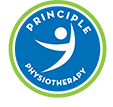
Myth Busting – Quick Fix Dieting
In the current fitness and nutrition climate it takes a quick search and a few clicks on Instagram to locate the next ‘quick fix,’ ‘nothing like it before,’ ‘miracle diet.’ It might come as a surprise but although social media platforms have vowed to regulate z-list celebrities promoting skinny jabs, fit teas and hunger suppressing lollipops, there is no law put in place to protect what can be promoted. It is therefore important to understand what we are looking at, how it may impact our health in the long run and to be aware of the consequences of rapid unsustainable weight loss.
The Rise of Social Media and Health
Of the 3.6 billion people who use social media worldwide, 18-24 year olds have stated they trust medical information shared on their social feeds. In half a decade from now it is predicted that nearly 6 out of every 10 individuals on the planet will have a social media account, that is a whopping 4.75 billion people. Therefore it is now more than ever that we ensure the health information that is shared is correct, and not unsafe. The health and fitness industry is growing year on year with celebrities taking a piece of the pie. It is not uncommon for our feeds to be flooded with people we look up to, that maybe 10 years ago we would only see on our TVs. If someone whose job is to look “great” 24/7, and is paid to do so is putting their progress down to a singular product, it is very easy to click the link and enter your card details. Now with the introduction of the ‘swipe up’ and shopping option on Instagram it has become even quicker and easier to do so. The question in when did we begin to trust complete strangers with no health, fitness or nutrition qualifications to give us said advice? When the proliferation of ‘health’ product promotion for money outweighs the quality of the health in the product, or the advice, caution must be taken. The darker side of this wave of quick fixes from social media can be seen in a number of cases where individuals are caught out with no awareness of what is in the product they are promoting. In extreme cases consumers of these products have become ill, or even died from taking diet pills and doing multiple ‘detox’ shake diets!
Where is the health?
So if these products are ‘healthy,’ why are they so unsafe and ultimately doing the opposite to what they are promoted as? It is often that you are either excluding certain food groups or food altogether. This is extremely dangerous as your body can become very easily nutritionally unbalanced. Like binge drinking, eating a few too many chocolates at Christmas, or not drinking enough water, your body begins to lack in certain nutrients presenting itself in a hangover, break outs, or fatigue due to dehydration. Drinking entirely juice for 5 days leaves your body lacking in essential fatty acids, and proteins integral for cellular action molecules involved in transport, storage, signalling, contractile, structural, immunological, and regulatory roles. Furthermore some of these juices can be high in naturally occurring substances such as oxalates. Large quantities of high oxalate foods like spinach and beetroot can increase the risk of kidney problems. These very low calorie diets often include some kind of laxative element, be it a tea or a pill. This again can be extremely dangerous causing fluid loss, electrolyte depletion and impair normal bowel function. In theory the ‘one size fits all’ plans provided with fit teas, and shake diets promote a ‘healthy’ diet. Whole foods, cutting out ‘bad foods,’ reducing snacking etc etc. However this not only has a physical effect on our bodies, but mental health also has a big part to play in these fad diets, detoxes and cleanses.
Brain health, body health and beyond
The $269 billion (global projection 2019-2024) weight management industry is ultimately looking to make money with the help of those advertising the products. These diet products are not prescribed but are found in health food stores, supermarkets, spas and most importantly, online. Accessible to anybody with a credit card. Therefore it begs the question, are they worried about the thousands of individuals now suffering with eating disorders, body dysmorphia, depression and anxiety? The simple answer, probably not. The more complex answer, if the industry is willing to overlook the cases of people developing physical conditions such as hyperchloremic acidosis due to laxative abuse, death due to diet pill overdose, or the little to no evidence that everyone should eat dependent on their DNA, then ‘invisible’ mental illness won’t have an impact. The quick fix diet can often be seen to promote ‘clean eating.’ A term which was coined by the original bodybuilding industry, and although an ambiguous term, basically alludes to eating plain vegetables and salad, grilled meat and brown rice, or sweet potato. It compartmentalises foods into clean and dirty, demonising anything processed, with any additives, cooked in any oils, sweets, chocolate, white potatoes, bread, the list goes on. Ironically this way of eating overlooks the highly processed protein shakes, diet shakes and protein bars that are prominently used in the fitness industry. Due to the ambiguous nature of such a diet it is not surprising that these diets can often cause eating disorders where individuals worry that they are putting ‘bad’ things in their body and therefore must detox to eliminate the toxins. In reality the false claim of toxin build up caused by eating bread or pizza pales in comparison to the increased suicide rates influenced by the age of social media and diet culture promotion.
Why sustainability is king!
Studies have shown that while these diets often lead to initial weight loss the individual often gains weight when they resume normal eating. This can have long lasting effects on the way an individual eats, and may even lead to them yo-yo dieting, or repeatedly using these products. The nature of the juice diets, cleanses, shakes, and pills etc. point to a very low calorie diet which can often be as low as 600 calories per day. In the UK the general recommended daily calorie intake for a healthy adult female is 2,000 and for men is 2,500 so it is not surprising that these diets do achieve what they are promoting. This level of calorie deficit is however not sustainable and must be approached with caution. In order to live a ‘healthy’ life it is important to balance a diet full of whole foods, lean protein, and fiber packed carbohydrates, with yummy cakes, ice creams in the summer, some french stick olive oil and balsamic vinegar and even a cheeky glass of wine on a weekend. Foods are neither good or bad, clean or dirty. It is important to understand that if weight loss is a goal and is being achieved for the health benefits to your body, then the combination of physical activity, and good nutrition can have a superior impact on overall health outcomes such as cardiovascular health, compared to, calorie restriction alone.
A Nutritionist View
Although right now it seems like we have a long way to go in regulating such content, we are able to educate. We are able to shed light on what is really important when it comes to dieting, fads, and quick fixes. This is not a new trend necessarily but with the proliferation of social media it has become more prominent and accessible. There are plenty of great nutritionists, dieticians and fitness influencers that have their audience’s wellbeing at heart.
Here is a list of great people to hit ‘follow’ on today, move over Kim K, the nutritionists are taking over:
https://financesonline.com/number-of-social-media-users/
https://www.statista.com/statistics/278414/number-of-worldwide-social-network-users/
https://www.health.harvard.edu/staying-healthy/the-dubious-practice-of-detox
https://www.nccih.nih.gov/health/detoxes-and-cleanses-what-you-need-to-know
https://pubmed.ncbi.nlm.nih.gov/29124370/
https://www.nhs.uk/common-health-questions/food-and-diet/what-should-my-daily-intake-of-calories-be/
https://onlinelibrary.wiley.com/doi/pdf/10.1111/j.1467-789X.2008.00547.x
https://bmcpublichealth.biomedcentral.com/articles/10.1186/s12889-018-5152-z




